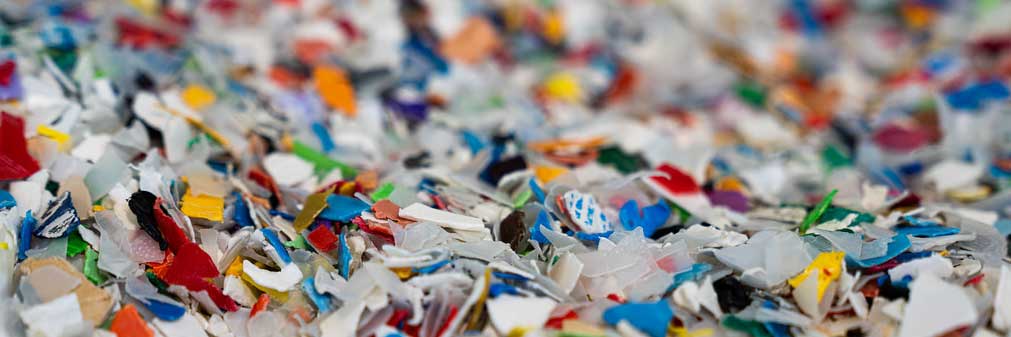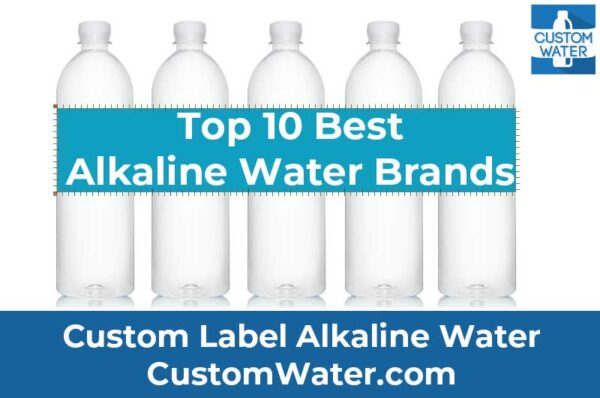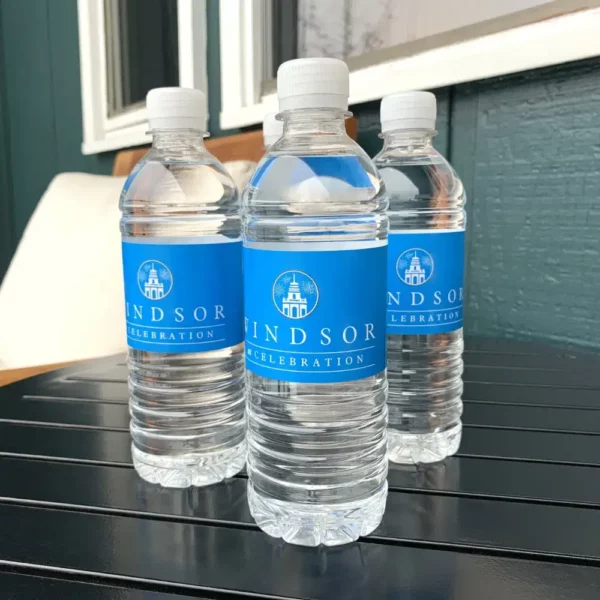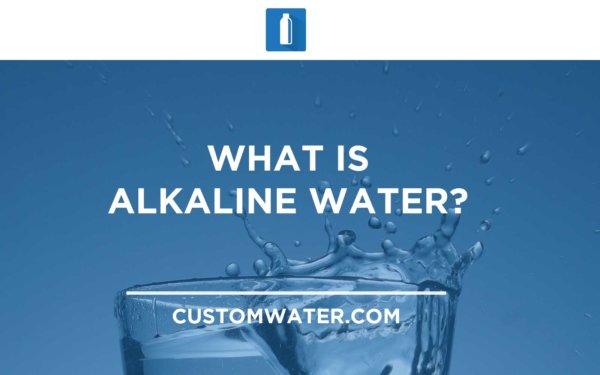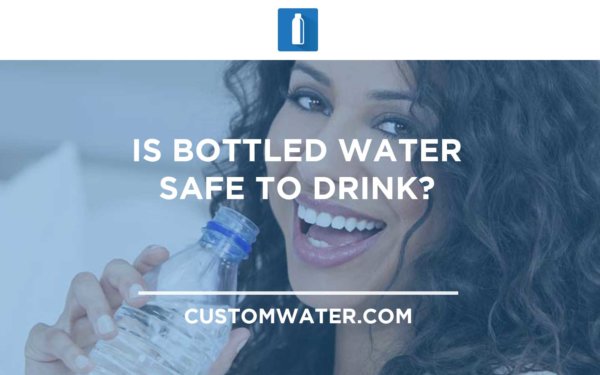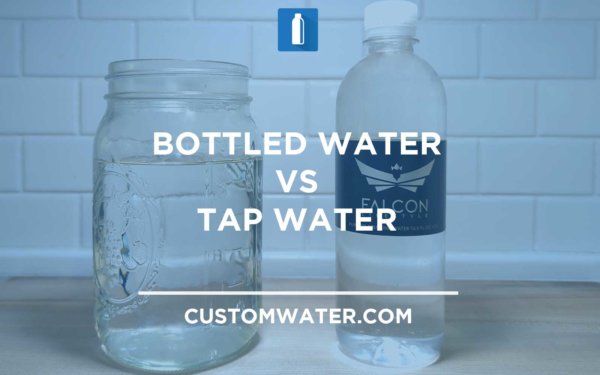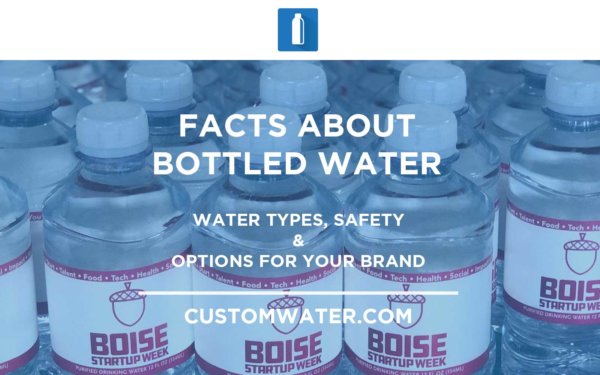This may surprise many, but the most concerning issue about plastic water bottles is not BPA but plastic pollution.
Many consumers believe that plastic water bottles leach chemicals, such as BPA. This, however, is not always true. Most food and beverage containers are made of another type of plastic—polyethylene terephthalate, also known as PET or PETE.
PET is a stable, non-reactive material that does not biologically or chemically degrade with use. Hence, it is a safe and valuable packaging option. Additionally, it is 100% recyclable.
At CustomWater, we put a premium on the safety of our consumers and the environment. Many of our bottled water products use recyclable PET (rPET) water bottles, and we strongly encourage recycling.
Why Recycle Plastic Water Bottles
Plastic water bottles offer convenience, but they also create unnecessary waste unless they are recycled. PET water bottles are safe to refill, reuse, and recycle.
Recycling plastic water bottles creates a positive impact on the environment. First, recycling reduces waste and frees up landfill space, which can be used for other waste. Recycling also reduces greenhouse gas emissions and lessens pollution.
How Are Water Bottles Recycled?
Recycling takes time and can be costly, which is why many companies prefer to use new plastic products rather than recycled ones.
First in the recycling process is the collecting of plastic bottles from different locations like homes and establishments. Every plastic bottle must then be sorted after collection.
Recyclable plastic bottles and non-recyclable ones are separated and sent to different processing facilities. During sorting, other materials, such as glass, metal, and debris, are removed from the pile and segregated accordingly.
Then, the bottles are washed and cleaned. Any trace of food, liquid, or chemical residue are removed thoroughly. Once the bottles are clean, they are shredded into flakes before they are me melted down and formed into small pellets the size of a grain of rice.
The pellets are then packed and sold to different companies so they can be recycled to various products. Think of plastic toys, decors, tools, and other plastic home and office essentials. Many of these come from recycled plastic.
How to Recycle Water Bottles At Home
With a little creativity and ingenuity, there are many ways to recycle plastic water bottles at home. Here are a few suggestions you can try:
Piggy Bank for the Kids
You can make piggy banks for kids out of empty plastic water bottles. It teaches children about recycling and the value of saving money. It enhances kids’ creativity and can be an excellent family bonding activity.
Hanging Planters
There are different ways of creating hanging planters out of empty water bottles. Cut the side, bottom, or the top part of the bottle depending on how you want to hang your planter. Then create four small holes for the string. You can paint the bottle if you want. Then add a little potting mix and your favorite plant.
Pencil or Crayon Holder
A pencil or crayon holder is an easy recycling project that you can do with your kids at home. Choose any size of empty water bottle. Mark the top part of the bottle where you want to cut. Use a box cutter for easy maneuvering.
You can paint the bottle and draw animals, smiley faces, flowers, etc. on the side.
Food Storage
Instead of buying food containers for decanting, try using empty water bottles instead. Empty water bottles are perfect for storing grains, seasoning, and other cooking essentials. Just ensure the bottles are clean and dry before you start decanting.
Nails and Screws Storage
Bits and pieces of nails, screws, and other tiny garage clutter can easily be organized using recycled storage. Just cut the top part or one side of an empty water bottle, apply a coat or two of paint, and fasten the container on the wall using a screw or a nail.
Bottom Line
The bottom line is simple: plastic water bottles are recyclable. Everyone can be a part of its solution by recycling empty water bottles at home and by using products made from recyclable PET containers such as our new line of bottles made using rPet from CustomWater.

